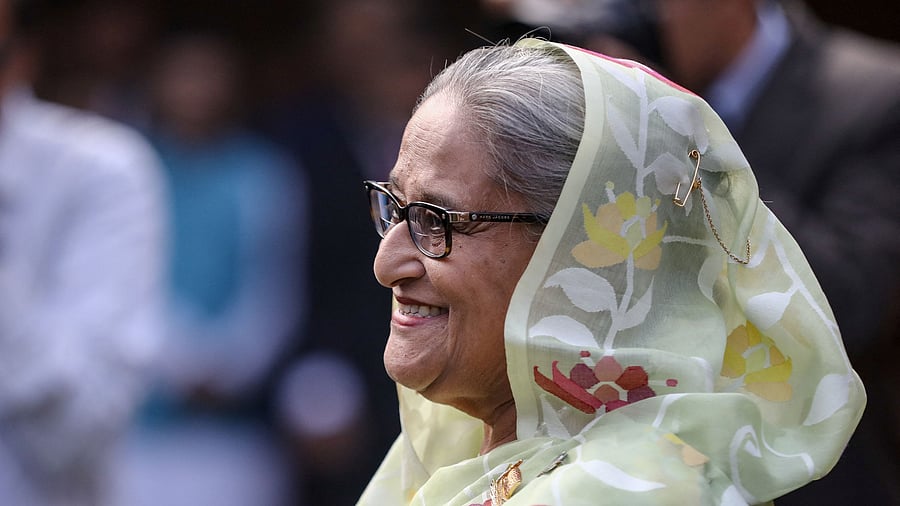
Sheikh Hasina, Prime Minister of Bangladesh and Chairperson of Bangladesh Awami League, reacts as she arrives for the meeting with foreign observers and journalists at the Prime Minister's residence in Dhaka, Bangladesh, January 8, 2024.
Credit: Reuters Photo
There is no surprise in the victory of Prime Minister Sheikh Hasina and her Awami League (AL) in the recent Bangladesh elections. Hasina described it as “people’s victory” but in the circumstances, this description is not accurate. Only 40% of voters turned out. The Bangladesh Nationalist Party (BNP) boycotted the elections after its demand for a neutral caretaker government to oversee the polls was rejected. Given this, Hasina’s fourth successive term will see Bangladesh continue to be gripped by political acrimony, and a zero-sum game between AL and BNP. This will unfold on the streets, as it has over the past dozen years, in the form of ‘hartals’ by the Opposition and harsh crackdowns by the government, with violence and bloodshed an inevitable feature of each such episode. Hasina, once feted by the world as a progressive leader, has slipped into authoritarianism to silence critics and the media, and keep a tight grip on power. This repressive streak in a leader who inherited the political mantle of her father, the Father of Bangladesh, Sheikh Mujibur Rehman, is unfortunate. Hasina and her party believe that the world is not looking at Bangladesh through the right lens. In their telling, she is the leader of a small country that came into existence only five decades ago in violent circumstances, and she has to deal with an Opposition that is “undemocratic”, but despite all this, she has managed to script the country’s economic turnaround, while dealing firmly with Islamist radicalism. But these are exactly the reasons why those looking for specks of light in this era of backsliding democracies were expecting her to set a better example in the region and the world.
The United States and the United Nations have flagged irregularities and expressed concern at the arrests of Opposition leaders. India, on the other hand, has welcomed the re-election of a friend. Prime Minister Modi was among the first world leaders to congratulate her on her historic win. Over the last two decades, Delhi has been an unstinted supporter of Hasina. Delhi sees Hasina as responsive to Indian security concerns about radical Islam exported by neighbours. Her predecessor Khaleda Zia, whose ruling coalition was packed with Islamist political groups, was a nightmare that Delhi has not forgotten. Hasina has also acted firmly to protect the minority Hindus and their places of worship in Bangladesh. Moreover, she understands Delhi’s red lines well enough to walk the tightrope between India and China expertly. The paradox is this: Delhi’s open espousal of Hasina makes her even more unpopular at home. The Indian establishment cannot be ignorant of her diminishing political capital. It is in India’s, and the region’s, best interests to have a stable, democratic Bangladesh. This should be the message going out from Delhi.
